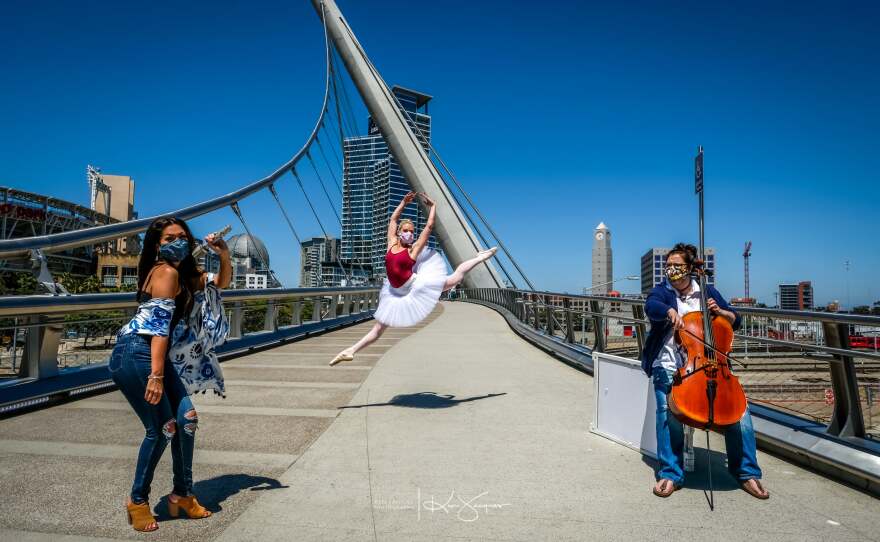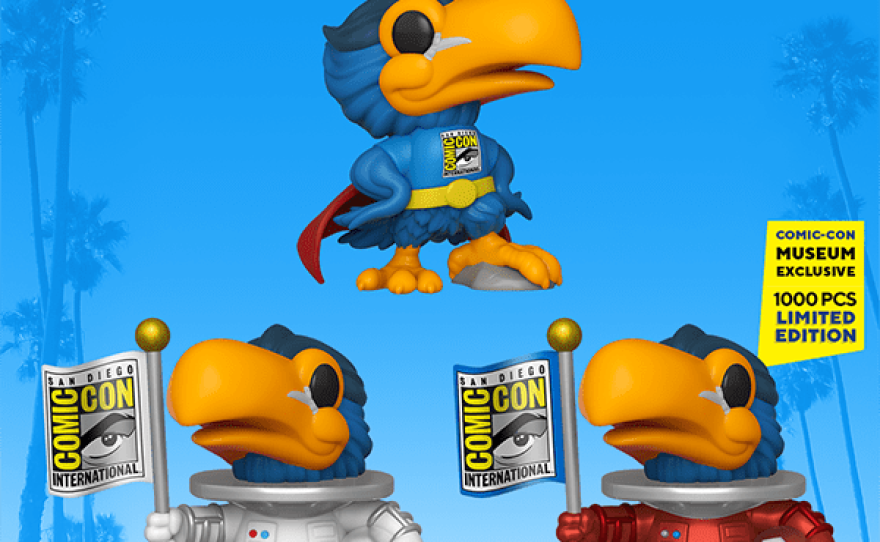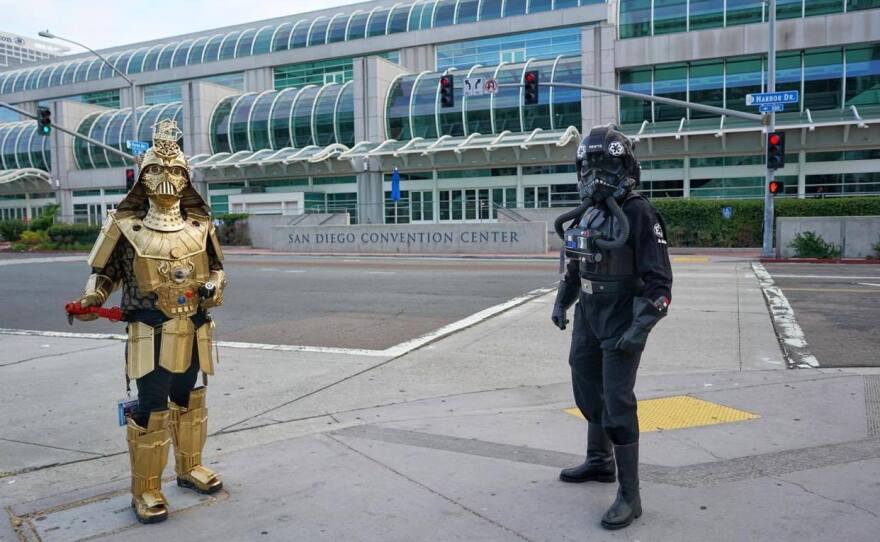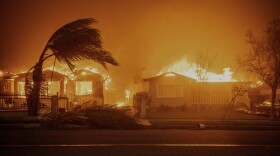Comic-Con International kicked off Wednesday night. But there were no people lined up ready to storm the San Diego Convention Center for exclusives and no badges needed to participate. The coronavirus pandemic forced the pop culture convention to move more than 300 hours of programming online with the first panels available Wednesday afternoon.
Nothing can replace the physical Comic-Con show and in-person experience. There's no satisfying virtual equivalent for walking the quarter-mile of the exhibit hall floor with 135,000 fellow geeks and discovering a new artist or finding an exciting new comic in small press.

But the coronavirus pandemic has forced Comic-Con International to cancel its physical show and move whatever it could online. And despite all the shortcomings, kudos to Comic-Con for trying to create a virtual version of the show.
You know the organizers are geeks themselves when they offer virtual con-goers a chance to print their own badges — including ones for pets — download audio of announcements you'd hear at the convention center, and print signs for everything from Hall H to restrooms. (If you would like to see how I put these geeky components to use, check out the video I made with my usual Comic-Con cohorts.)
The downside is no physical gathering of the geek tribe, but the plus side is more people can get a taste of the pop culture convention than ever before. And it's all free.

All you need to do is go to the Comic-Con website and then click on programming or exhibit hall or art show or whatever virtual experience you want and then explore. For me the most exciting thing are the panels. They are mostly YouTube links that go live at the time the panel is listed in the program and then most will remain up indefinitely so you can check them out any time. This is not the same as being there in person.
So the first panel listed on Wednesday's schedule, Comics in the Classroom: Ask Me Anything, had already surpassed 9,000 views as of Thursday morning. More people viewed it than you could fit into Hall H (which has a 6,400-seat capacity). Plus that panel would have likely been in a small room for just a few hundred and probably overlooked by most attendees who prefer to wait in line for the splashier Hollywood panels.
But now so many more will have access to that information. That’s a silver lining and it’s worth celebrating.

And attendees no longer have to agonize about choosing one panel over another because you can watch multiple ones programmed at the same time because of the YouTube links. And there's no risk either. You can start a panel and if it's not what you expected then you can just leave. Or if a friend messages you to say another panel is brilliant, you can pause yours and check the other one out.
My favorite panel from Wednesday was the Image Comics, hosted Comics as a Conduit where panelists discussed comics that deal with real-world issues and how they are being used by educators and librarians. David Walker, author of a graphic novel on Frederick Douglas and the comic "Bitter Root," made this observation about comics right now.
“The medium is so exciting and I’m seeing comics that are not quite comics, they are not quite graphic novels," he said on the panel. "I can't quite figure out what they are, it's like an evolution like when film went from silent film to talkies, I feel like we are on this major transitional path for this medium and I’m just happy to be a part of it.”
He also pointed out that the visually more dynamic medium of comics can help engage students and should be used more as a tool in education.

The panels I am most eager to see are on the women behind Apple TV’s "Mythic Quest" (available Thursday at 1 p.m.) and another on FX’s "What We Do in the Shadows" (available at 5 p.m., Saturday), which may be the singular most inventive and funny show streaming now.
But top of my list is Max Brooks’ panel on Zombies and Coronavirus: Planning for the Next Big Outbreak (available Friday at noon). His "World War Z" book pretty much laid out everything that has been happening in this pandemic so far. The panel addresses how can you educate the public on complex ideas.
“Well, one way is pop culture," Brooks said. "And I don’t mean high literature or I don't mean the stuff of academia. I mean what regular schmucks like me would read or watch or listen to, popular culture, because we need to engage the populace. That is why I write what I write. That is why I write the way that I write because what I am trying to do is talk about these big important issues in a way that people like me might not only understand but be interested in.”
And no better platform than Comic-Con to reach that populace, and Comic-Con@Home will allow even more people to view this content.






